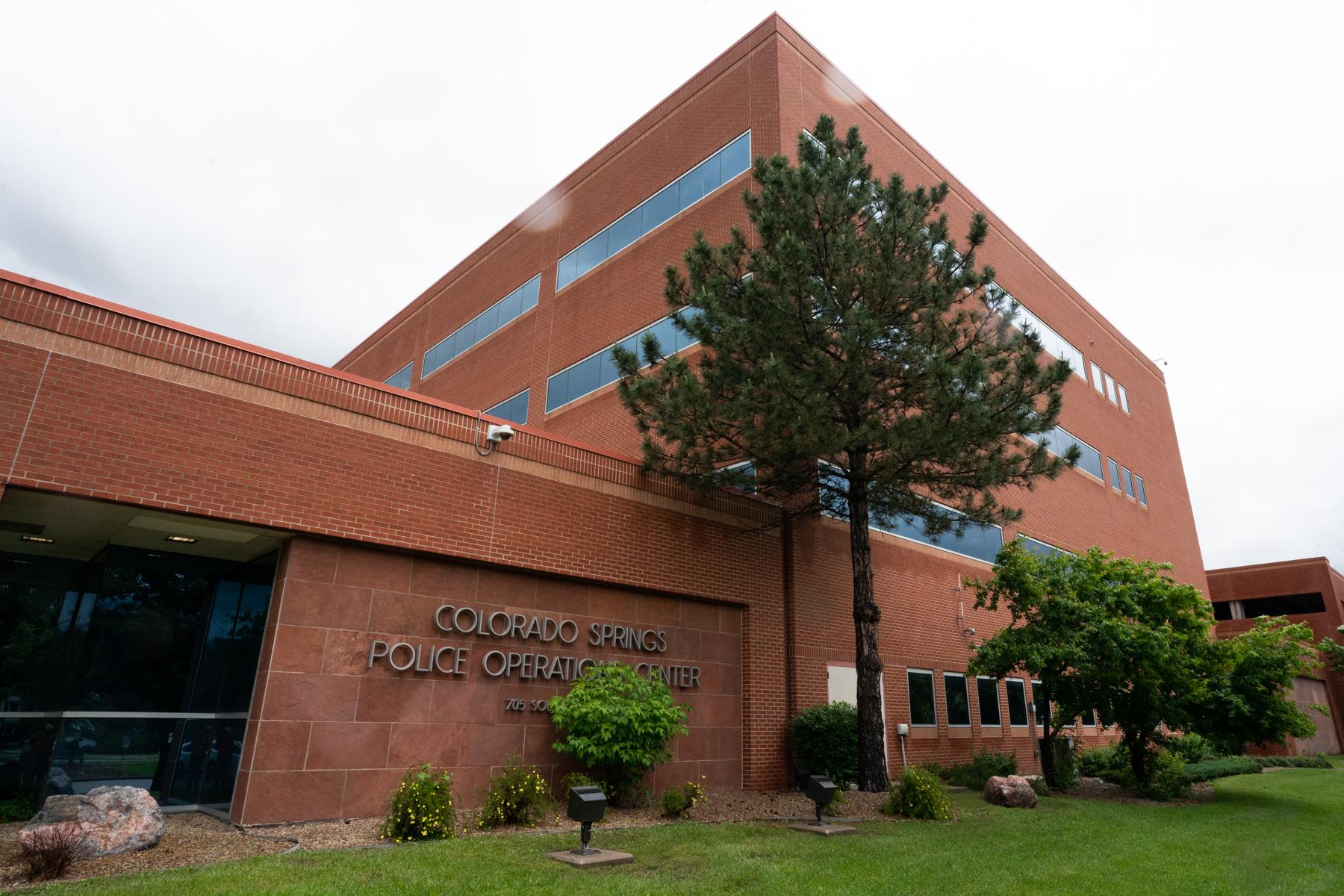
Some Colorado Springs residents are speaking out against the possibility of their tax refunds being used to help fund a new police training academy. The comments came as the city council considers adding a measure to the November ballot asking voters' permission for the city to keep up to $5 million in anticipated tax refunds. The money would be used to acquire space for Colorado Springs Police Department to train recruits.
Colorado Springs Mayor Yemi Mobolade and Police Chief Adrian Vasquez floated the potential Taxpayer's Bill of Rights — or TABOR — retention question during a city council work session earlier this month. Mobolade estimated the total cost of the project to be between $30-40 million, but details were limited.
At a meeting Tuesday, Colorado Springs resident Chauncey Johnson encouraged the city council to hold off on the measure and presented members with a petition signed by 2,000 people he said are against it.
"When you guys are going around with Mayor Yemi to have these town halls and talk to your citizens, I ask that you bring this measure up and see if there are things that this $5 million could be put into, like housing," Johnson said.
He was one of nearly a dozen people who questioned the CSPD's need for the funds, with some saying they fear adding officers would disproportionately impact disenfranchised communities. Some suggested the money should be used for affordable housing projects and addressing homelessness.
CSPD currently has 730 sworn officers with 88 open positions, according to records provided by the department. Last year, 85 officers left the force. So far this year, 33 have left. Of those, close to one-third cited personal reasons for leaving. Nearly the same number retired. 37 recruits are expected to join CSPD once they finish training later this year. It's unclear how those statistics compare to other departments.
The department is one of many in the state that has struggled with staffing. In a presentation to city council earlier this month, Police Chief Adrian Vasquez said the department doesn't have enough space to simultaneously offer training to recruits and existing officers. Despite the limitations, Vasquez said CSPD is holding a training academy every 15 weeks with a minimum of 40 recruits in each class. That cycle began this month.
Charles Johnson, a college student and community activist, told the council they should spend some time listening to residents.
"We're too busy going toward the troops and tourism. And that's not it. That's not going to save Colorado Springs," he said.
Resident Jaymen Johnson addressed community and council members at the meeting and said he sees the potential new academy as way for Colorado Springs to hire and train officers in a way that shapes the force to fit the city's needs, rather than relying on the training they have received elsewhere.
Council members did not take action on the proposed ballot measure Tuesday. They did approve a resolution to participate in the state's coordinated election on Nov. 7 and hold a special election at that time, though. That action is a placeholder, City Clerk Sarah Johnson said during the meeting.
As was the case during the initial discussions earlier this month, Councilman Dave Donelson expressed concern about the project's limited scope, thus far.
"We don't know where the rest of the money comes from," he said, referring to the limited reach of the $5 million.
Donelson was the sole vote against the resolution to participate in November's election.
Council will see a detailed presentation on the possible ballot question early next month and set specific language for the measure at a later date.
TABOR uses a formula based on population growth and inflation to cap how much tax revenues local governments can keep each year. Taxpayers are refunded the excess unless voters approve the funds for use elsewhere. For example, in 2021, Colorado Springs residents voted in favor of the city keeping up to $20 million in retained tax money for a fire mitigation program.









